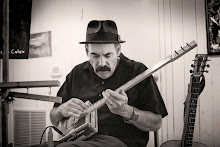| |||
 |  |  |
| ||||||||||||||||||||||||||||||||||||||||||||||||||||||||||||||||||||||||||||||||||||||||||||||||||||||||||||||||||||||||||||||||||||||||||||||||||||||||||
| ||||||||||||||||||||||||||||||||||||||||||||||||||||||||||||||||||||||||||||||||||||||||||||||||||||||||||||||||||||||||||||||||||||||||||||||||||||||||||
Gerald Van Het, www.psychedelicfolk.com
Foxy Digitalis website:

This is a welcome 25th anniversary reissue of this Oregon trio’s rare, cassette-only sophomore effort. Dreamy, mellow folk tunes paved the way for the current new folk movement and unique touches like the echoed vocals on “Grandfather” and the tinkling bells on “Rain, Rain” make this something special. Jeff Stier’s flute and recorder establishes a warm, floating vibe throughout the mostly instrumental album, and the liner notes from main composer Stephen Cohen are both historical and informative. The Spanish air to Cohen’s guitar on the lengthy “Things Fall Apart” is both hesitant and inviting, and draws the listener in to Stier’s recorder/flute flourishes, transporting the listener to an otherworldly plane, part gypsy dance, part ominous bullfight. (Note: The bonus track, “Sketches,” also benefits from this earthy, European vibe and is generously dedicated to the band’s part-time drummer, Denis Mochary, who played on it and several other tracks and who passed away in Japan several years ago.)
“Thomas” is a live favorite that’s part Simon & Garfunkle, part Peter, Paul & Mary and 100% fun – the harmonies are particularly well-arranged, weaving wonderfully around Stier’s recorders. This is one for those rainy day dreamaways where you find your mind wandering off to lonely strolls through the park, or navel gazing under the old apple tree out back. And if you can’t get up and do the jolly jig to “Dance,” then your get up and go has got up and gone and it’s time to return to your armchair traveling…back to the kinder, gentler times of 1984 to climb up and build a tree house to hang out with The Tree People and mellow out to “Human Voices.”
Jeff Penczak (11 August, 2009)
The review below is definitely entertaining and positive despite Casey's allergic reaction to flutes. One correction- the words to the song Human Voices are:
in the morning when you're still sleeping
when you have those crazy nightmares
I swear I hear, within the bird song
human voices joining along in a laughing song
(so that's why people print out the words on albums! I guess we will print the words on the new album when it is ready!)The Tree People Human Voices
(Guerssen)
[July 8th, 2009] 
[FLUTE FOXES] Within the first 30 seconds of the Tree People’s reissued sophomore album, Human Voices, the psych-folk trio tests an aughties listener’s threshold for both the weird and the tender: “In the morning when you’re still sleeping/ When you have those crazy nightmares/ I swear I’m here within the birdsong/ Human voices joining along in our loving song.” These trippy lines are beautifully delivered—spooky three-part harmonies paired with unpredictable chord and tempo changes rattling out from a finger-picked guitar. But when the flute swoops in like an excitable raven, cynicism and years of anti-Renaissance Fair conditioning creep into one’s opinion.
About half of Human Voices is instrumental, with Stephen Cohen’s voice and acoustic guitar canoodling with Jeff Stier’s expertly played flutes and organic percussion. And while the wordless compositions—anchored by Stephen’s brother Jeremy on bass—are coolly melodic, it’s a side of the recently rebuilt trio that is going to be tough for modern audiences to contextualize. Oregon was a gentler place in 1984, it would seem. Still, the Tree People’s lyrically driven songs are both accessible and modern. The haunting “Grandfather” evokes Lou Reed more than Donovan; disc highlight “Thomas” is a Simon and Garfunkel-esque story song, and the earnest “That’s Entertainment” is both relatable and thrillingly told.
Picking up a Human Voices isn’t quite like discovering Nick Drake or John Fahey—musical spirits who seem more natural now than they ever did when they were in their prime songwriting years. Instead, one has to meet Treepeople halfway between now and then. But Human Voices, like the trio’s fascinating 1979 self-titled debut, provides another excellent reason to do so.






No comments:
Post a Comment